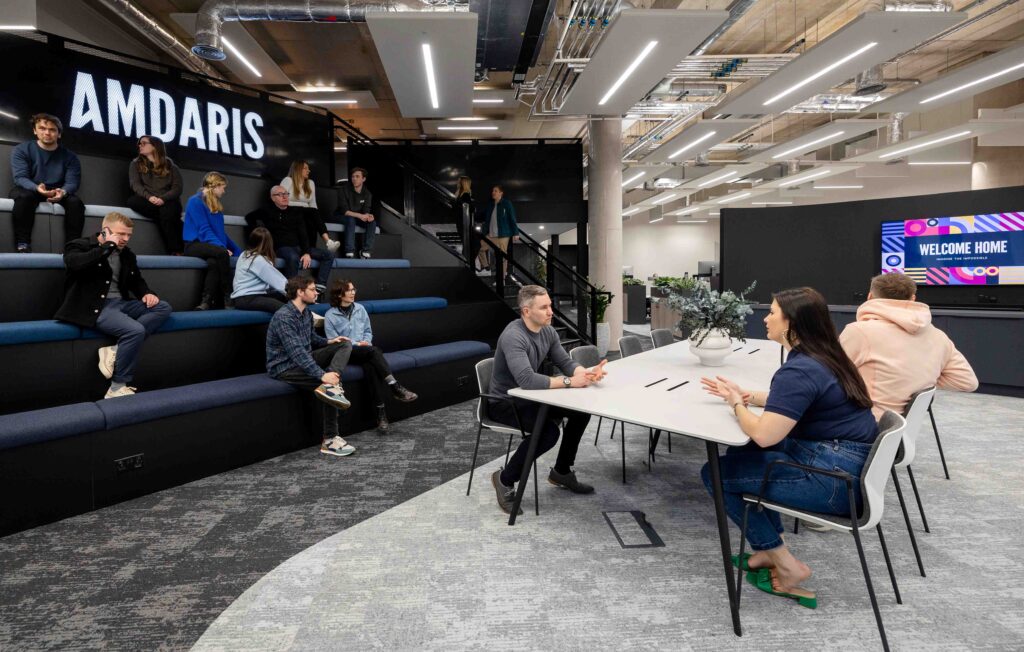We all know how challenging the funding landscape can be for startups and scaleups, and the technology sector is no different. While private equity and venture capital firms will be actively looking for tech companies to back, what are they after exactly? And how can you ensure you stand out from the crowd?
If you’re a tech entrepreneur preparing to fundraise, read on to hear what our investment team really value in a technology business.
What do investors look for in a tech business?
1. Big addressable market
One of the number one drivers of value in tech companies is scalability. And to scale well, you need a big addressable market. As a rule of thumb, a new entrant will do well to capture 5% of its total market in five years. Estimating the total addressable market can be tricky, however, which is why businesses must be realistic in their assumptions. For example, before including Asia in your total addressable market, you first need to research the region and factor in any additional operating costs.
2. Solves a pain point
Whether it’s developing SaaS solutions, healthtech or the latest innovations in generative AI, a good technology business understands and can clearly articulate the problem it solves. Your solution doesn’t have to be revolutionary, but it does have to offer something different from competitors, such as a better user experience, increased efficiency, or a lower price. Fledgling tech companies often fail because there’s not enough of a need for their products. It’s not good enough to be a nice-to-have; you need to fix a pain point for your customers.
3. Barriers to entry
Good technology businesses are well-defended against competitors. They have protectable intellectual property (IP), proprietary technology, and sticky customers. Without barriers to entry, even large businesses struggle to demonstrate value.
Take the example of Deliveroo: the food delivery app listed on the London Stock Exchange in 2021 at a steep discount to expected values. It was described as the “worst IPO in London’s history”. The main reason cited by analysts was concerns over competition, brought about by low barriers to entry.
4. Motivated people
Retaining the brightest minds is a growing challenge, due to a skills shortage, remote working and inflation, which is driving up salaries. How are workers being motivated? This goes beyond salaries, artisan coffees, and gym memberships. Our investors like to see a culture of collaboration, humility and ambition, as well as appropriate training and support. If a business is merely paying lip service to these elements, it will be evident in staff turnover rates and business performance.
5. Ability to sell
To state the obvious, a business needs to have traction with customers. For an early-stage tech startup, it may be enough to demonstrate that several parties have committed to purchasing or are currently testing a beta version of your product. For a more established, growth-stage company though, we would look at the spread of customers, contractual terms, and embeddedness. To do well, a business needs to implant a robust sales mentality – a proven team, strong customer relationship management, appropriate incentivisation and accountability.
6. Commercial edge
Tech companies are full of innovators; that’s a prerequisite. But to really grow in a competitive marketplace, you also need hard-nosed commercial acumen. How well are customers and competitors understood? Do the unit economics stack up? What are the key performance indicators?
And when it comes to your business model, it’s important to be realistic. There’s little benefit in predicting improbable, ‘hockey stick’ growth in your plans – this will call into question credibility. While tech startups are expected to be product-obsessed and ambitious, this still needs to be underpinned by good old-fashioned commercial sense and financial planning.
What’s a good example of a tech company investors look for?
We’ve already backed a number of high-potential tech businesses, helping them to realise their growth plans. Our portfolio companies include early-stage ventures (spanning deep tech, life sciences, and climate tech) through to established technology scaleups, like award-winning software developer Amdaris and tech-enabled healthcare services provider Primary Care Physio.
A particularly good example of what our investors are looking for in a tech company is ReBOUND Returns. Based in Shropshire, the business develops an intelligent returns management platform for e-commerce businesses around the world. It solves a pain point for retailers, offering a good user experience and competitive rates, owing to economies of scale. We were attracted to the scalability of its platform (it grew to a turnover of £40 million in just under five years) and invested in the business in 2018, before exiting to reverse logistics consolidator Reconomy Group in 2021.
What trends are tech investors focusing on this year?
We asked our team if there were particular technologies or sub-sectors they were excited to invest in this year, and a key theme that came out was sustainability and climate change:







